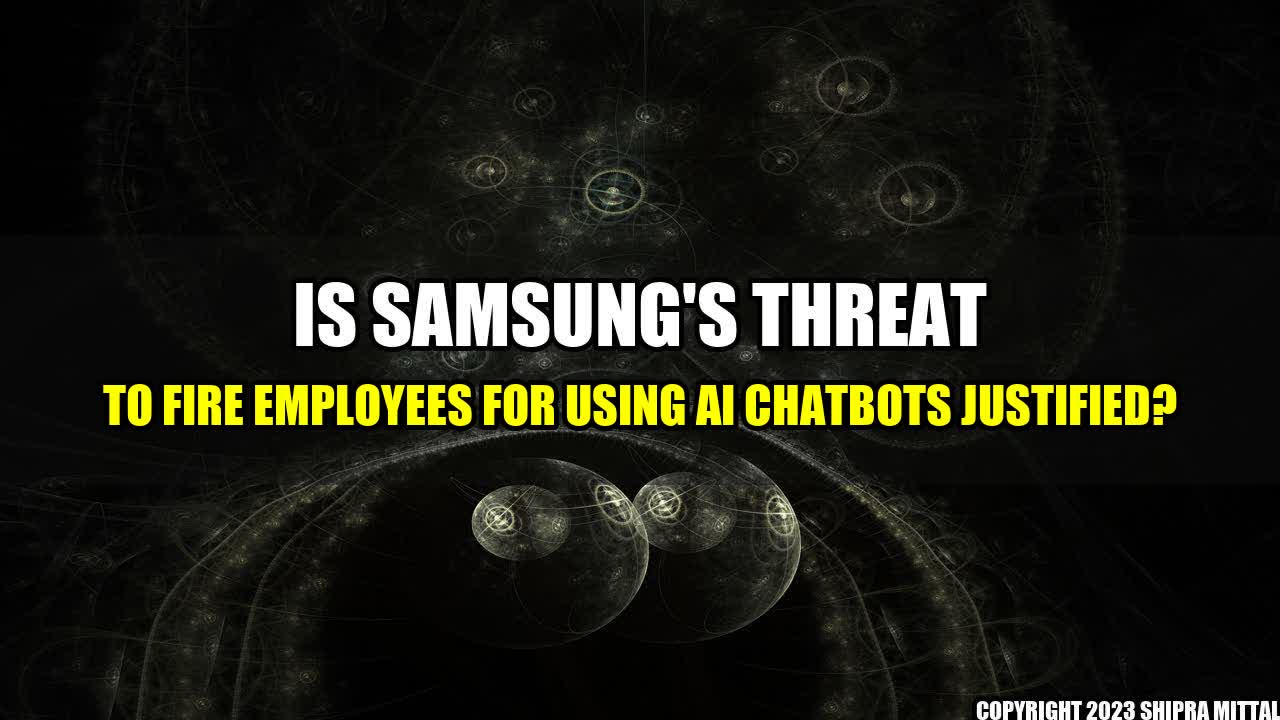The Story
Recently, Samsung has made headlines for its threat to fire employees who use AI chatbots like ChatGPT. The company claims that these chatbots, which are designed to assist customers or provide information, are a security risk, as they could potentially leak confidential information through conversations.
However, many employees argue that these chatbots are a valuable tool for their work and that they have not seen evidence of any security breaches. They believe that Samsung's threat is an overreaction and that the company should trust its employees to use discretion when interacting with customers.
Real-Life Examples
Samsung is not the only company grappling with the use of AI chatbots in the workplace. Many companies are implementing these tools to help with customer service, sales, and even internal communication. Here are some examples:
- Bank of America: The bank uses Erica, an AI chatbot, to assist customers with their banking needs. According to Bank of America, Erica has handled over 35 million interactions with customers and has a satisfaction rating of 88%.
- Salesforce: The CRM software provider uses Einstein, an AI chatbot, to help sales teams with lead prioritization, data entry, and follow-up tasks. According to Salesforce, Einstein has helped teams increase their productivity by up to 40%.
- Facebook: The social media giant has launched Project Awaits, an AI-powered NLP tool, to help businesses sell products via Messenger chats. The tool can understand natural language queries and provide product recommendations to customers.
These examples show the potential for AI chatbots to improve efficiency and customer satisfaction, but they also raise concerns about data privacy and accuracy.

Akash Mittal Tech Article
Share on Twitter Share on LinkedIn